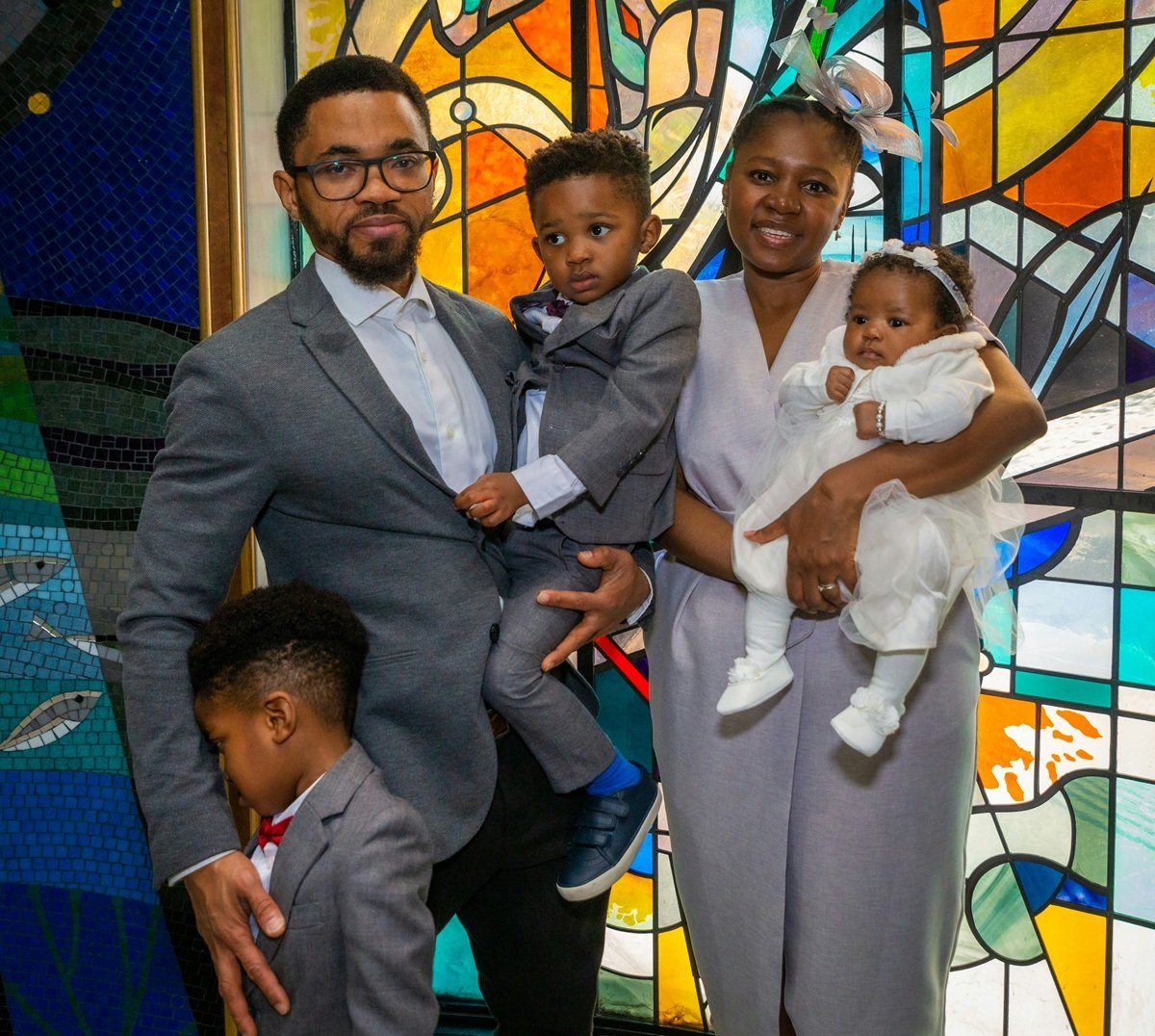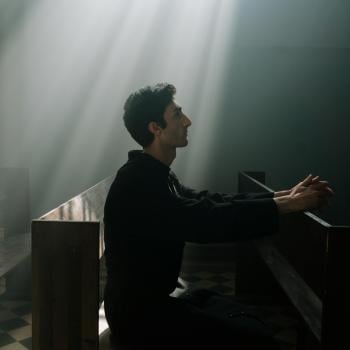April 24th is National Take Our Daughters and Sons to Work Day. That’s fine for most children, but not so great for pastor’s kids.

I have many memories of my parents taking me to work with them when I was a kid. When sick, I normally went to my mom’s place of employment, as she worked at a pediatric office. My dad invited me to ride in the back of the car as he ran his rural newspaper route. He paid me a dollar on weekdays and three dollars on Sundays to hand rolled-up papers from the back seat to the front. Nice work when you can get it. Unfortunately, taking my own children to work meant something different, as they were PKs.
PWs and PKs
If you’re new to church, you might not be aware of the dynamics surrounding a pastor’s family. When many churches call a pastor, they consider the family as a package deal. One church member lovingly referred to my wife at the time as “PW,” short for “Preacher’s Wife.” He meant it as a term of affection since he grew up in a ministerial family. But she was more than aware of the unspoken expectations a church puts on a pastor’s spouse. That’s an article for another time. Unfortunately, many churches consider their pastoral family to be church employees by default. Similar to clergy spouses, PKs grow up with unrealistic expectations from the congregation.
When I accompanied my parents to work, it was for one day. Sometimes they brought me just so I could get a peek into their world—and that was great! Other times it was because I was sick, or so I could help out. That was also great. Any expectation of good behavior ended at quitting time. But churches place their expectations on PKs 24/7.
Unrealistic Expectations from Churches
Unrealistic expectations from churches can put a lot of pressure on a pastor’s kids. Whether it’s spoken or unspoken, parishioners expect PKs to:
- Attend all church functions, even if they have no particular role there. Examples include, but are not limited to, weddings and funerals, all worship services (even if the church has multiple services on a Sunday morning), Sunday school, youth group meetings, youth and children’s events, missions activities, and even events for senior citizens. It goes without saying that attendance of church camp is also compulsory.
- Attend community events and personal occasions of parishioners. Is the church sponsoring a float in the local parade? PKs had better be on it. Did your deacon invite the clergy family to his house for a retirement party? PKs had better be there, along with both of their parents.
- Have all the answers. In Sunday school and other Bible lessons, teachers expect PKs to be the first to raise their hands with the answers. And, if they don’t volunteer those, PKs are the most likely to be called on in class.
- Maintain perfect behavior. Churches expect PKs to model their best behavior at all time—on and off the church campus. Whether they are at school, little league, or playing in their own front yard, PKs live their lives under a microscope, under the constant scrutiny of critical church folk.
- Set an example. Since church members expect PKs to have all the answers and maintain perfect behavior, it follows that they also expect them to set a moral example for the other kids in church and outside church.
- Volunteer for special tasks. When the church needs a youth representative on the board, PKs make a natural choice. If the pastor needs a last-minute helper to staff the church booth at the local festival, they know they can call on their kids in a pinch. Did the sound guy call in sick on a Sunday morning? PK to save the day! Whether they sign up for the task or not, PKs end up as de facto
- Impromptu Chaperones. I can’t tell you the number of times I needed to meet one-on-one with someone of the opposite gender at church, where, for propriety’s sake, I dragged my kids along to do their homework or play on their devices in an adjacent room. Appropriate or not, PKs end up sometimes serving as impromptu chaperones for their parents.
I asked my own PKs to chime in. One said, “I always felt we were held to a higher standard than other kids in the church. Whether it was with school, friends, extra-curriculars, or dating, we were always expected to be perfect and never fall behind or do wrong.”
The Result of Unrealistic Expectations
What’s the result of these expectations? The Church hopes that, by shadowing their clergy parents, PKs will grow up to be just like Mom or Dad. For some, this is true. Some PKs do grow up to join the “family business.” But, in “RAISING CHURCH CELEBRITIES: A STUDY OF CLERGY PARENTING PRACTICES,” Steven Tighe reports that, “Overall, although one third of the clergy children reported thinking about studying theology, only 3% of the PKs in the study became ministers themselves.”
In addition, not only have most adult PKs I know avoided becoming ministers—the majority have left the Church entirely. Considering my own children, my nephew, and the kids of my clergy friends, most don’t attend church anymore. And many have left Christianity altogether.
In 2023, I wrote, “Youth Leave U.S. Pews Like Rats from a Sinking Church.” Everything I stated in that article goes doubly for pastors’ kids. In that post, I say, “Youth are leaving U.S. pews like rats from a sinking Church. But, instead of realizing what to do about that, we’ve been too busy calling them rats!” In other words, when PKs leave the church, we blame them rather than examining what’s wrong with the toxic Church culture that burned them out.
More Collateral Damage
There’s still more collateral damage that the Church does not expect. As a direct result of the toxic Church culture, many pastor’s spouses are leaving their marriages, leaving the Church, or both. In consequence, many ministers exit the pulpit, either for a hiatus or for good.
Unfortunately, for all who have walked out of church, there are more Church members who point fingers and call the clergy and family “unfaithful to the call.” Instead of victim blaming, the Church needs to consider positive solutions to prevent this from happening.
Some Practical Solutions
In this section, I will offer some practical solutions. Some of these are actions that local congregations can take. Others are recommendations for pastoral families.
Recommendations for Pastoral Families
- Take plenty of vacations. For a pastor to truly be on vacation, they must be away from the church field. Otherwise, the phone will keep ringing and church members will keep knocking. For clergy, staycations don’t cut it. Be sure to take plenty of time away, to create some breathing space for your family. Make memories together and make them often.
- Budget for those vacations. Family trips won’t happen if you can’t afford them. Even if you have to sacrifice in other areas, family vacations are worth the expense. Make sure you plan for them.
- Resist the Church’s Expectations. Your church is going to have expectations of your kids. The trick is resisting your own urge to place your church’s expectations on your kids, too. I didn’t do too well at this, and it’s a source of regret. Whether it’s attendance, behavior, or anything else, your kids are kids and should be treated that way.
- Don’t turn your kids into your helpers. This is another area where I failed. If there’s a job that needs doing, and the church members are unwilling to volunteer to help, then the job should be left undone. That way, parishioners will see the results of their failure to assist in the work.
- Quit working so much! Pastors are extremely susceptible to workaholism and burnout. Families suffer when ministers make their congregations the highest priority. Unfortunately, many pastors do this because they forget who their Boss is. Fearing people rather than honoring God, they allow their parishioners to pressure them to work nonstop. This damages the family and your children’s faith.
- Learn from my brother and his family. When I asked my kids their input on this article, one wrote, “…Do your church/work/family life the way [my uncle and aunt] do…Paul preaches at one church and Kim goes to a completely different one. That way she is technically a preacher’s wife but isn’t held to the standards of one. She can be her own person without being attached to the person who holds the highest human authority in that particular church. I only saw a glimpse of their system, but it seems like it would work in the favor of the family. If we had gone to a different church than you had preached at, I don’t think we would have been placed in that bubble. At least not as much.”
Actions the Local Church Can Take
- Quit placing unrealistic expectations on PKs and clergy spouses. If you’re a leader in your congregation, educate the other parishioners on best practices for clergy families. Recognize all the factors that lead to PK burnout. Treat them with increased love and grace, not unreasonable expectations.
- Basically—facilitate all of the recommendations I’ve made above. This means paying ministers appropriately, offering generous vacation time and even retreat locations. It means stepping up to volunteer and discouraging your pastor from utilizing their kids as de facto helpers, if you see them doing it. Stop expecting PKs to set examples and let them be kids.
- Learn from my brother and his family. Pay close attention to what my grown kid said above, about observing the difference it made when my brother’s family attended a different church from him. I could never have gotten away with this at the Southern Baptist churches that I pastored. But, if the church culture had been different, I could have let my kids have their own life and church, separate from my job.
- Understand this—and understand it good! Your pastor is responsible for the way they raise their kids. But you create the expectations you place on your pastor, which they, in turn, put on their kids. If you change your pastor’s experience, you’ll change their kids’ experience, too.
National Don’t Take Your Children to Work Sunday
National Take Our Daughters and Sons to Work Day is April 24. It may be an enjoyable time to show your son, daughter, or nonbinary kiddo the kind of work you do. Possibly, they’ll get inspired and consider your line of work for themselves. But, if you’re clergy, you might learn from my brother and his family. Maybe, just for clergy families, we should have “National Don’t Take Your Children to Work Sunday.” And, who knows—maybe we could make that a way of life.

















